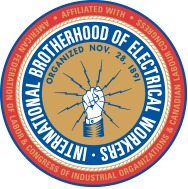In last month’s Electrical Worker, International President Lonnie R. Stephenson announced the “IBEW Strong” initiative to grow a more inclusive and representative union, and IBEW leaders in Canada are embracing the push to increase diversity while continuing to educate the best electrical workers in the world. It’s something that’s been a First District priority for years.
“We have an opportunity as an industry to solve multiple problems by putting people to work,” said Cheryl Paron, an international representative in charge of the First District’s outreach to traditionally underrepresented communities.
“We pride ourselves at the IBEW on the strength of our construction apprenticeships. We have a higher standard. But at the same time, it can exclude some of those communities that do not have the resources to meet our requirements. We’re looking for ways to change that while maintaining those standards.”
“We’ve long worked to make IBEW membership more accessible, and the IBEW Strong initiative will help us do that even more,” First District International Vice President Thomas Reid said. “Not only is opening our doors the right thing to do, as our nation grows in diversity, we have to reflect that change. IBEW membership offers a path to a better life for members and their families and that’s especially vital in areas where the population has been historically marginalized.”
Such is the case with Canada’s Indigenous community, which has lagged badly behind most of Canada in wages and benefits and where educational opportunities are often limited. Paron said many Indigenous communities want to become more involved with trade unions because they believe they offer their citizens a chance at a better life.
“Maybe they attended schools where they were not able to learn math and science to meet our [apprenticeship] standards,” she said. “So, we look for ways to bring them up to our standards.”
For the IBEW, one of the most successful diversity efforts has been at Toronto Local 353, which has been an active member of the Central Ontario Building Trades’ Hammer Heads program since its formation in 2009. The program is designed to aid men and women between the ages of 18 and 26 in the Indigenous and other under-resourced communities in developing the skills needed to work in the trades.
Successful applicants are placed with a mentor and enrolled in a 12-week boot camp to improve their math, science and English skills. They also visit various jobsites to get a better understanding of which trades appeal to them.
After that, those interested in an electrical career take the Local 353 apprenticeship exam. Ten have gone on to be journeyman wiremen and several more are now apprentices, Local 353 vice president Jeff Irons said.
“These really are great young people,” he said. “In addition to now having a career as an electrician and being part of Local 353, we’ve found they’re upfront, proud union members who will promote the trade union movement.”
Vital work also is being done at Vancouver Local 213, which has had an active Electrical Workers Minority Committee for several years. Work by Local 213 members led to the formation of the BC Centre for Women in the Trades, which studies and advocates for ways to retain women working in construction.
Paron said she hopes those examples show local unions across Canada the importance of such work.
“Some of them look at this and think it’s difficult to do,” she said. “They don’t know where to start. We understand that, so we’re trying to lay things out and show them people who have done this work and they can talk to.”
Paron said the increased diversity efforts also can pay off at non-construction locals, noting her time as a member of Ottawa Local 2228, which represents about 1,900 federal workers across the country. She was employed by Nav Canada for eight years and the company paid her expenses to attend the IBEW’s Women’s Conference in 2018.
“They saw the value of promoting leadership among women,” she said. “One of the things we need to continue to do in [professional and industrial] is to promote partnerships like this.”



